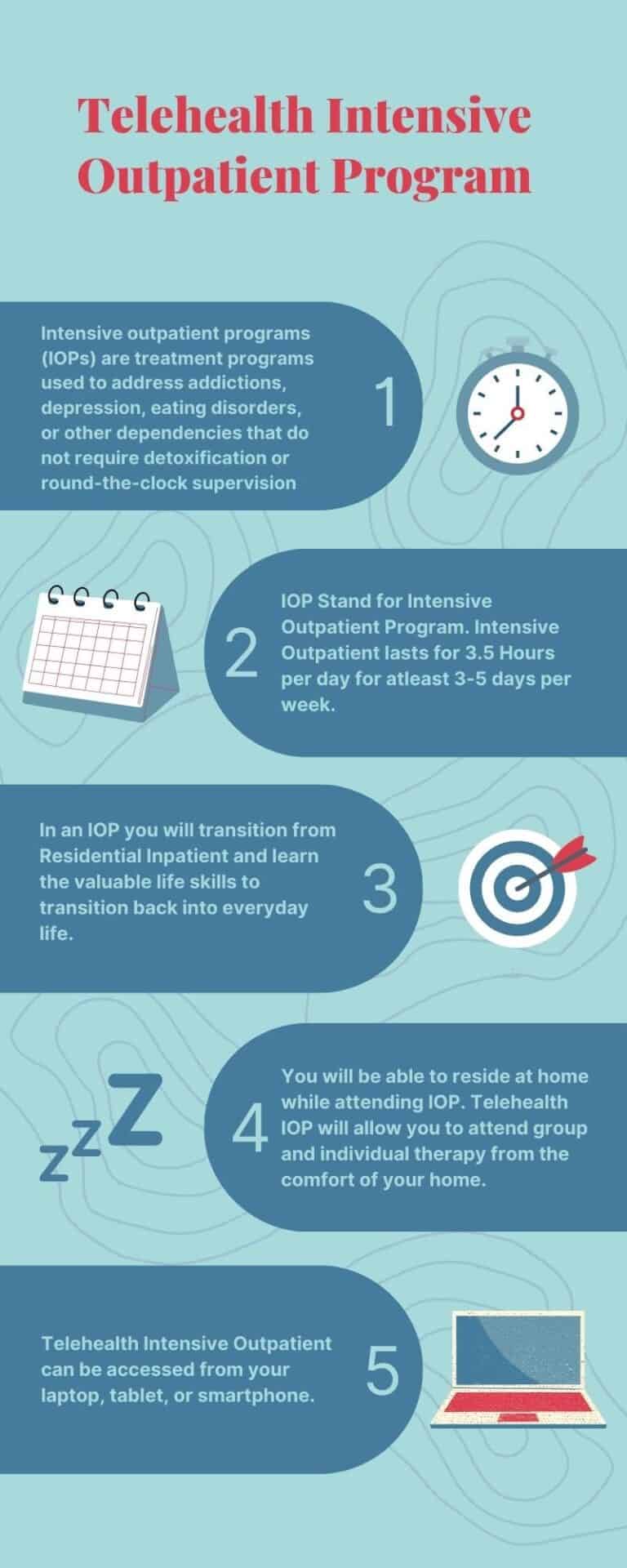The Benefits of Intensive Outpatient Program (IOP) for Long-Term Wellness.
The Benefits of Intensive Outpatient Program (IOP) for Long-Term Wellness.
Blog Article
The Impact of Holistic Therapies on Mind-Body Healing in an Extensive Outpatient Program
In the world of intensive outpatient programs, the incorporation of all natural treatments has sparked substantial passion and dispute among specialists in the area of mental wellness and health. The exploration of different techniques, such as yoga, reflection, acupuncture, and mindfulness methods, questions regarding their effectiveness in advertising mind-body healing for people going through treatment. As the need for extensive and integrative treatment grows, recognizing the effect of these holistic treatments within the structured structure of an intensive outpatient program comes to be increasingly crucial. The possible synergy between standard restorative methods and alternative techniques in promoting all natural well-being continues to be a subject ripe for exploration and evaluation.
Integrating Holistic Therapies in IOP
Integrating alternative treatments right into Intensive Outpatient Programs (IOP) can enhance the general health and therapy outcomes of individuals seeking mental health and wellness assistance. All natural therapies concentrate on treating the entire individual, resolving not just the symptoms but also the underlying root causes of mental health and wellness problems. By incorporating techniques such as yoga exercise, reflection, art treatment, and acupuncture right into IOP setups, people can experience a more comprehensive approach to their treatment.

Advantages of Yoga and Reflection
By instilling IOP setups with all natural treatments like yoga exercise and meditation, individuals can access an array of advantages that contribute to their psychological and psychological well-being. Yoga exercise, with its concentrate on physical positions, breathing methods, and mindfulness, can help people minimize anxiety, anxiety, and clinical depression. The method of yoga advertises relaxation and improves total mood by launching endorphins, the body's all-natural feel-good chemicals. Additionally, yoga exercise improves self-awareness and fosters a feeling of inner tranquility, which can be particularly beneficial for people undergoing extensive outpatient treatment.

Acupuncture for Mind-Body Healing
Acupuncture, a conventional Chinese medicine technique including the insertion of thin needles right into certain points on the body, offers an one-of-a-kind strategy to mind-body healing by targeting energy circulation and promoting all natural health. This ancient strategy is based on the concept of Qi, the body's essential energy, flowing along meridians or paths. By stimulating details acupoints, acupuncturists intend to restore the equilibrium of Qi, which is believed to be crucial for general health and health.
In the context of mind-body healing, acupuncture has actually shown encouraging cause reducing anxiety, anxiety, and clinical depression by regulating the body's physical reaction to these problems. Research recommends that acupuncture can assist release endorphins, the body's all-natural painkillers, and control neurotransmitters to enhance state of mind and emotional health. Additionally, acupuncture sessions are usually accompanied by a feeling of leisure and calmness, which can add to a more balanced psychological state.
Moreover, acupuncture is progressively being incorporated into Western medicine techniques to complement traditional therapies for numerous mental health and wellness problems, offering an alternative technique that takes into consideration the interconnectedness of the mind and body in promoting recovery and health. Intensive Outpatient Program (IOP).
Mindfulness Techniques in Therapy
Expanding on the realm of alternative treatments, mindfulness techniques play an essential duty in therapy by fostering a deeper connection between the body and mind for total health. Mindfulness, rooted in old reflective practices, involves paying interest to today minute non-judgmentally. In the context of an extensive outpatient program, including mindfulness strategies can aid people develop self-awareness, regulate emotions, and reduce Going Here tension levels. Through mindfulness meditation, individuals can cultivate a heightened sense of awareness of their thoughts, feelings, and physical experiences, advertising a better understanding of the interconnectedness in between physical and psychological wellness.
By urging individuals to observe their ideas without attachment or judgment, mindfulness cultivates a sense of approval and compassion in the direction of oneself. Ultimately, incorporating mindfulness techniques right into therapy plans can encourage individuals to proactively participate in their recovery trip and promote all natural well-being.

Evaluating Alternative Treatments' Efficacy

Qualitative examinations, on the other hand, involve collecting subjective feedback from individuals concerning their experiences with all natural interventions. This qualitative data can supply beneficial understandings into the regarded advantages of these therapies on people' general well-being, lifestyle, and coping devices. By integrating quantitative information with qualitative feedback, scientists can get a more all natural understanding of the effectiveness of these interventions in advertising mind-body healing within an extensive outpatient program. Such examinations are important for educating evidence-based methods and optimizing all natural treatment strategies for individuals looking for extensive health.
Conclusion
Finally, the assimilation of holistic treatments such as yoga exercise, meditation, acupuncture, and mindfulness methods in an extensive outpatient program can have a significant effect on mind-body recovery. These treatments offer a more detailed strategy to treatment by attending to the physical, emotional, and spiritual elements of a person's health - Intensive Outpatient Program (IOP). Evaluating the effectiveness of these alternative treatments is crucial in understanding their prospective advantages in boosting the total recovery process for individuals in an outpatient setting
Report this page